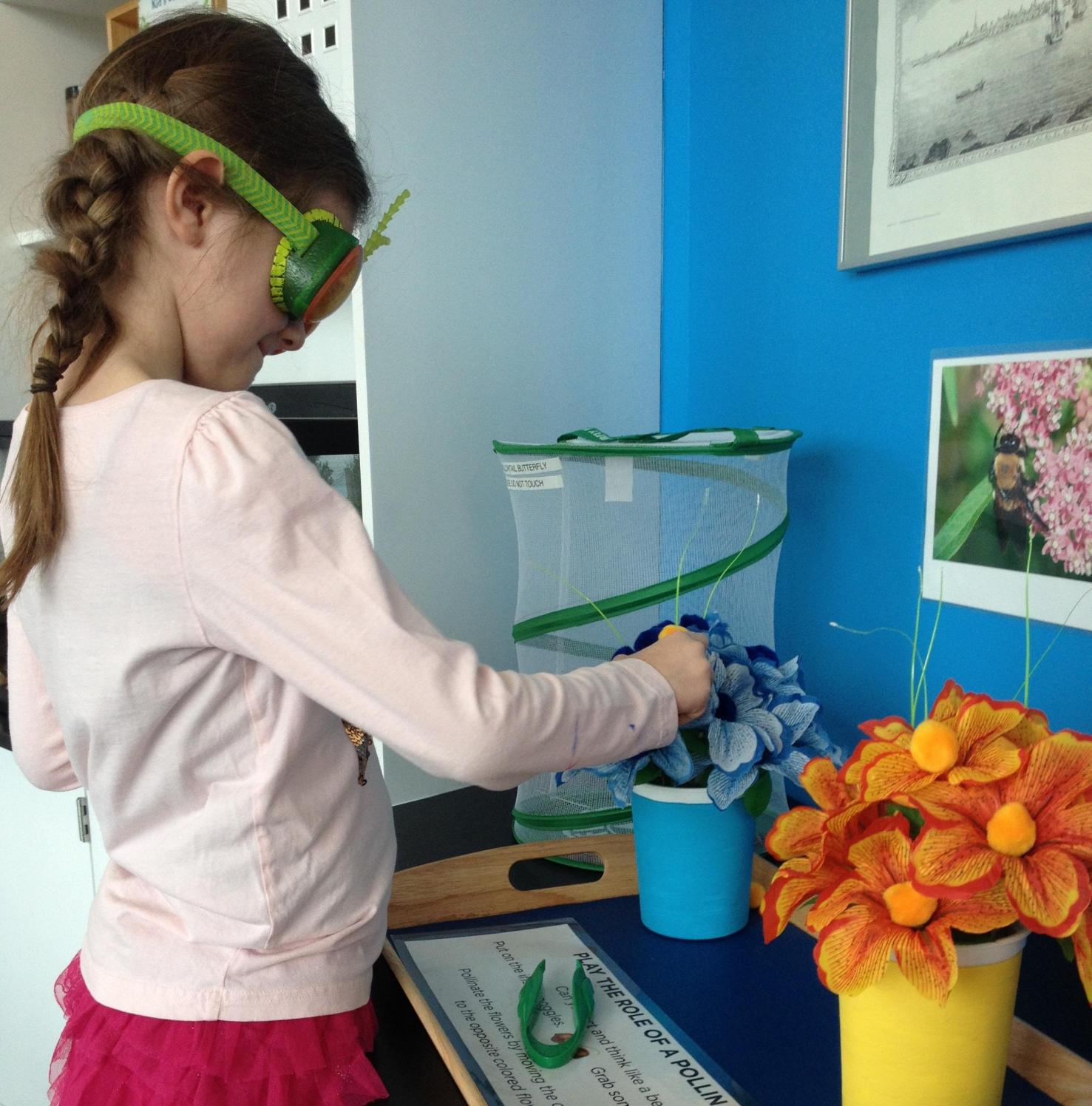by Brooklyn Bridge Park Conservancy
If you haven’t visited the Environmental Education Center recently, be sure to stop by to explore the wonders of pollinators—just in time for National Pollinator Week!
Pollinators include animals such as butterflies, bees, birds, bats, and beetles! These animals have an important role in food production. They transfer pollen from one flower to another—aiding in plant reproduction and the formation of fruits. If you love eating berries, apples, melons, and cucumbers, remember to thank the pollinators!
During Open Hours this month, you can take on the role of a pollinator in an interactive game that requires visitors to wear bee goggles and cross-pollinate the flowers!

Want to learn more about the process of pollination? Our reading library is stocked with books appropriate for all ages! The Center is also full of visuals highlighting the parts of a flower and lifecycles of important pollinators like the monarch butterfly.
Environmental threats such as pesticide use, conversion of grassland for urban use, and climate change have severely affected monarch populations and their primary food source, milkweed. Brooklyn Bridge Park has been dedicated to planting native plants, such as milkweed, which provide food and habitat for traveling pollinators.
Learn more about National Pollinator Week and what you can do to protect pollinators here.

